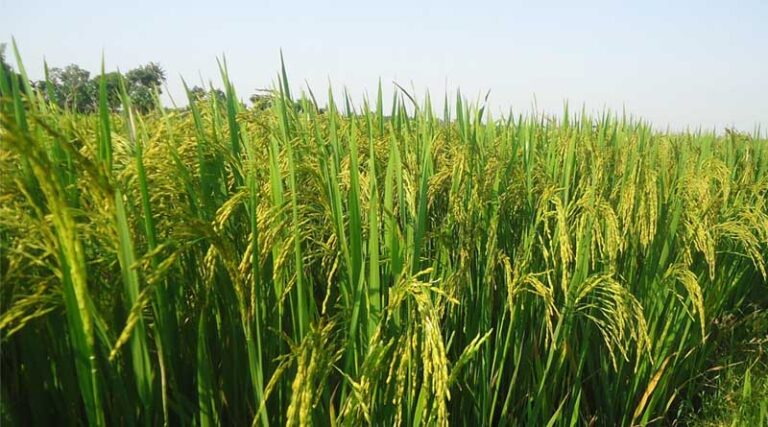
Warning for Punjab Farmers: Fijivirus Threat to Paddy Crop, PAU Issues Advisory
17 July 2025, New Delhi: The Punjab Agricultural University (PAU) has issued a strong warning to paddy farmers in the state regarding the threat posed by the Southern Rice Black-streaked Dwarf Virus (SRBSDV), commonly known as Fijivirus. The university has called for urgent vigilance in the fields and early identification of symptoms to prevent potential crop losses.
Heavy Damage in Previous Season
The virus had previously caused significant damage during the 2022 Kharif season across several Punjab districts, including Fatehgarh Sahib, Patiala, Hoshiarpur, Ludhiana, Pathankot, SAS Nagar, and Gurdaspur. Paddy crops in these regions were severely affected, highlighting the need for preparedness and timely intervention this year.
Symptoms Farmers Should Look Out For
Fijivirus mainly causes stunted growth in plants. Infected plants tend to produce narrow, long, and upright leaves. Their root and tiller development slows considerably, resulting in a reduction of plant height—often to just one-third or half of what is considered normal. In several instances, the plants dry up prematurely, leading to a drastic drop in yield.
Detect Early, Report Promptly
Dr. P.S. Sandhu, Head of the Plant Pathology Department at PAU, stressed that early detection of the virus is vital to controlling its spread. He urged farmers to observe their crops closely and immediately contact their nearest Krishi Vigyan Kendra (KVK) or PAU experts if any symptoms are noticed. Although current surveys have not identified any nursery-level infections, the situation calls for constant monitoring and preparedness.
Spread by the White Backed Plant Hopper
The virus is transmitted primarily by the White Backed Plant Hopper (WBPH). Dr. K.S. Suri, Chief Entomologist at PAU, advised farmers to inspect their paddy fields and nurseries weekly. One can check for the presence of WBPH by gently shaking or tilting the plants and observing whether the white-backed insects fall onto the water surface.
Use of PAU-Recommended Insecticides
In the event of an infestation, PAU has recommended specific insecticides for controlling WBPH. These include Pexalon 10SC, which contains triflumezopyrim and should be used at a dose of 94 ml per acre; Ulala 50WG, based on flonicamid, at 60 grams per acre; and Osheen, Dominant, or Token 20SG, which contain dinotefuran, to be applied at 80 grams per acre. Additionally, Imagin 10SC or Viola 10SC (flupyrimin) can be used at 300 ml per acre; Orkestra 10SC (benzpyrimoxan) at 400 ml per acre; and Chess 50WG (pymetrozine) at 120 grams per acre. All of these insecticides should be diluted in 100 litres of water and sprayed towards the root zone of the plant using a flat-fan or hollow-cone nozzle. Dr. Suri warned that excessive or indiscriminate use of these chemicals could lead to pest resistance and harm the environment.
Zinc Deficiency Could Be Another Reason
PAU Director Dr. M.S. Bhullar noted that not all cases of stunted growth are caused by viral infection. Zinc deficiency in the soil can produce similar symptoms. He recommended that farmers consult experts for accurate diagnosis before applying any chemical treatments, ensuring they are addressing the right issue.
Field Monitoring in Full Swing
According to Dr. A.S. Dhatt, Director of Research at PAU, university scientists are conducting thorough inspections in farmers’ fields. In addition to monitoring paddy crops, they are also observing surrounding weeds and other non-crop plants to prevent the virus from spreading through alternative hosts.
Also Read: ICAR to Validate Biostimulants Before Sale, Says Union Agriculture Minister Shivraj Singh
📢 If You’re in Agriculture, Make Sure the Right People Hear Your Story.
From product launches to strategic announcements, Global Agriculture offers unmatched visibility across international agri-business markets. Connect with us at pr@global-agriculture.com to explore editorial and advertising opportunities that reach the right audience, worldwide.






